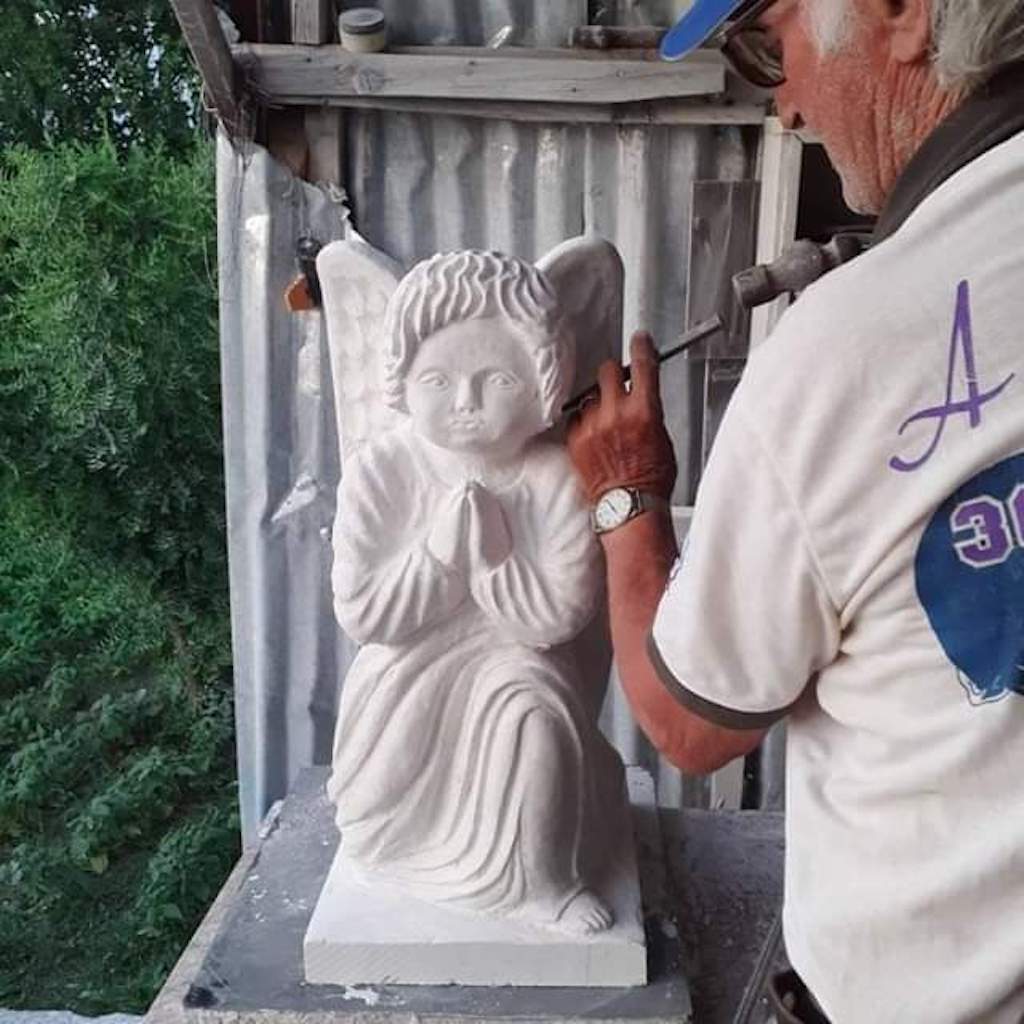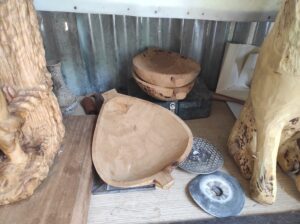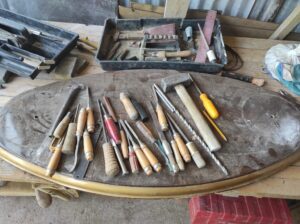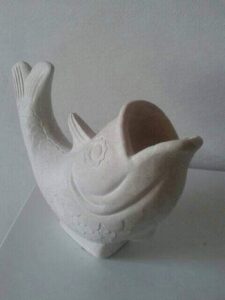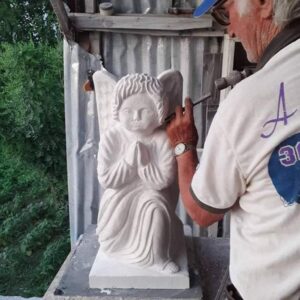Stone and wood carving is a skill and talent passed down through generations by different craftsmen who have left their mark in decorating the house walls, door stones, windows, and household appliances, such as: washbasins, cupboards, various paintings, musical instruments, kitchen utensils, etc.
It is an early tradition, with various works having been performed mainly by craftwork, i.e., hand-made using a chisel and a hammer.
The raw material, namely the stone used for the works is found locally, mainly from Guri i Zi surroundings, while the stone used for larger works is taken from Berat and Skrapar. As regards woodwork, mulberry wood is preferred because of its color and time-resistance peculiarity; yet, walnut, chestnut, maple, and olive wood are used as well.
Stone Carving
Stonework goes through the following steps:
Initially, the object to be carved is selected.
Stone drawing of the object is performed.
Large pieces are cut away by giving the required shape using a claw hammer or other tool.
The master begins to shape the object using a special chisel and hammer.
The object takes on fine shapes using a small chisel, a pointed chisel, and a comb chisel.
The finer the work, the smaller the chisel selected.
Every 30-minute work is followed by a 10-minute inspection to check for or detect defects.
Once the work is finished, the master uses a stone cutter to work on the smallest details of the object and to give its final shape.
Wood Carving
Woodwork goes through the following steps:
The wood species is selected.
The object to be carved is selected.
A preliminary decoration is drawn on paper and then cast on wood.
Large pieces are cut out using a chisel, hammer, and saw.
Having removed some pieces with a chisel, work proceeds with milling cutters and files of different sizes.
The masterworks on the object with sandpaper comes in a range of grit sizes.
Once the carving is finished, the process follows with wood color toning and varnish treatment.

